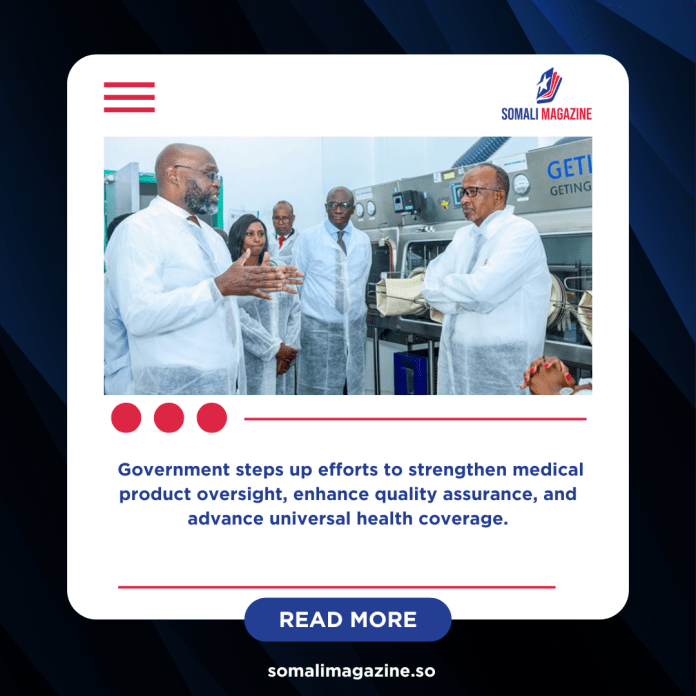Facebook Twitter (X) Instagram Somali Magazine - People's Magazine
Kenya’s government has reaffirmed its commitment to achieving the World Health Organization’s (WHO) Maturity Level 3 status for health product regulation — a key milestone in strengthening the country’s capacity to ensure the safety, quality, and effectiveness of medical products.
Health Cabinet Secretary Aden Duale made the announcement during a strategic meeting with the Board and staff of the National Quality Control Laboratory (NQCL), where he highlighted the government’s ongoing efforts to modernize regulatory systems and enhance the country’s health infrastructure. The meeting focused on reviewing the institution’s challenges and identifying sustainable solutions to strengthen its operational performance and overall effectiveness.
Duale commended the NQCL for the progress it has made so far in improving quality assurance systems and reaffirmed his ministry’s dedication to helping the institution meet international standards. He emphasized that the government is working on a focused 90-day action plan aimed at helping Kenya reach WHO Maturity Level 3 status — a globally recognized benchmark that signifies a well-functioning and integrated regulatory system for medical products.
During an inspection tour of the laboratory, Duale noted that one of the immediate priorities is to fast-track the calibration, repair, and maintenance of six stalled High-Performance Liquid Chromatography (HPLC) machines. These machines play a crucial role in testing and analyzing the quality of medicines and health products. Restoring them to full operation, he said, would not only enhance efficiency and reliability but also increase the laboratory’s revenue and technical capacity.
He further urged the institution to align its operations with modern healthcare demands by reducing the turnaround time for product testing and certification to 42 days, as required by international standards. A shorter turnaround time, Duale explained, will help build stronger client confidence, ensure timely access to quality medical products, and support the growth of local pharmaceutical industries.
The Health Cabinet Secretary also stressed the importance of collaboration between the National Quality Control Laboratory and other regional and international health regulatory bodies. He said Kenya aims to strengthen partnerships that will help the country adopt best practices, share knowledge, and improve the regulation of health products across the region.
Achieving WHO Maturity Level 3 will mark a major step forward for Kenya’s health sector. It will create a more robust and transparent regulatory framework for medical products, ensuring that all medicines and health technologies available in the country meet the highest standards of quality, safety, and efficacy. Additionally, it will help expand access to affordable, quality-assured medicines, boost local pharmaceutical manufacturing, and enhance the country’s ability to respond to health emergencies such as pandemics.
This progress aligns with Kenya’s broader goal of achieving Universal Health Coverage (UHC) by ensuring that citizens have access to safe and effective medicines without financial hardship. Duale noted that a strong regulatory system will also improve public trust in the healthcare sector and attract investment in local pharmaceutical production, ultimately reducing reliance on imported medicines.
As the government intensifies its focus on strengthening health systems, Duale reaffirmed his ministry’s readiness to support the National Quality Control Laboratory through policy reforms, infrastructure upgrades, and capacity-building initiatives. He expressed confidence that through commitment, innovation, and collaboration, Kenya can soon join the ranks of countries that have achieved WHO Maturity Level 3 — positioning itself as a regional leader in health product regulation and quality assurance.

